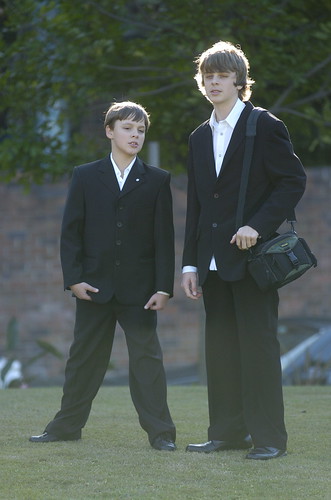Happy birthday Kuba ...

Characters like Marta Chamilova, Russell Cope or John Hatton etmon... tend to make a real difference ...
“After the cheers have died down and the stadium is empty, after the headlines have been written, and after you are back in the quiet of your room and the championship ring has been placed on the dresser and all the pomp and fanfare have faded, the enduring thing that is left is the dedication to doing with our lives the very best we can to make the world a better place in which to live.”
“Like leadership, identity is never singular but is multiply constructed,” wrote Stuart Hall, founder of cultural studies. Do his reflections on his identity help us understand our own?... One manages things but human remains departments dictate that people and selected psychopaths ( lead ) people
The Greatest Two Minutes in Sports
Brims and booze and panelled
rooms and paintings
rooms and paintings
titled go man go and pharaoh —
What explains us
Have we coevolved with waste
and are we here
and are we here
to be its forward vessel
How long until science
admits that we are worthless
admits that we are worthless
except as carriers —
instinctively we nurse it, we pass it
down, we’re done ...
down, we’re done ...
Mike Schmidt apologized last week for doing something that is no longer tolerable in a media age fueled by website hits and social media clicks. He gave an honest answer to a simple question.
How dare he.
This latest example of the decline in the simple art of communication was especially maddening to me because I got caught right in the middle of it. I asked the greatest third baseman in baseball history whether Odubel Herrera could ever be a major building block to a championship team.
Schmidt paused before answering, and then said this:
Mike Schmidt should have told me to go to hell | PhillyVoice“My honest answer to that would be no because of a couple of reasons. First of all, it’s a language barrier. Because of that, I think he can’t be a guy that who would sort of sit in a circle with four, five American players and talk about the game . . . or come over to a guy and say, ‘Man you gotta run that ball out.’ It just can’t be, because of the language barrier.”

Leadership by Lombardi
Pro Football Hall of Fame Archivist Jon Kendle has just written a piece on Lombardi’s legacy for the Ohio Times Reporter. Anyone coaching a team would do well to study Lombardi. Here are a few selections.
"During practice sessions, Lombardi could be seen teaching football fundamentals, while simultaneously preaching to his players the importance of dedication, love, passion and pride. Lombardi built his teams on the premise of selflessness and unity. He wanted high-spirited, disciplined, talented people willing to pay the price to succeed. His teams were fueled by heart power. He loved his players, and in return, his players loved him."
"Through raw human emotion Lombardi communicated to his players. Good or bad, he never held back. He learned to use emotion to create the desired effect. He motivated, he led, and he taught through his passion, never concerning himself with what others thought about him. He built character through action, teaching his players by example, and instilling confidence in everyone he met. Lombardi’s leadership did not rest on ability, his leadership was a combination of intangibles, it was a culmination of commitment, loyalty, pride, and discipline held together with relentless emotions."
Lombardi himself wrote: “After the cheers have died down and the stadium is empty, after the headlines have been written, and after you are back in the quiet of your room and the championship ring has been placed on the dresser and all the pomp and fanfare have faded, the enduring thing that is left is the dedication to doing with our lives the very best we can to make the world a better place in which to live.”
My kind of coach.
Yet facts are stubborn things. And the fact is that two Catholic priests, Gregor Mendel, O.S.A., and Georges Lemaitre, were pivotal figures in creating two of the most important scientific enterprises of the twenty-first century: modern genetics, which is giving humanity previously unimaginable powers over the human future; and modern cosmology, which is giving us glimpses of the universe in the first moments of its existence.
Mendel is perhaps the more familiar figure; most high school biology classes explain how the Moravian monk developed gene theory and the theory of inherited characteristics (with its distinction between recessive and dominant traits) from his studies of the humble pea. Lemaitre, a Belgian, was a brilliant mathematician who first articulated the Big Bang theory of the universe’s origins and subsequent expansion. That proposal, ridiculed by some at first, now reigns supreme in astrophysics and seems to have been verified by the astonishing work of the Hubble Space Telescope. Watch for Father Lemaitre’s bold idea to gain even further traction from the findings of the James Webb Space Telescope when it begins orbiting the sun, a million miles from Earth, in a few years.
Moravian Monk Mendel
